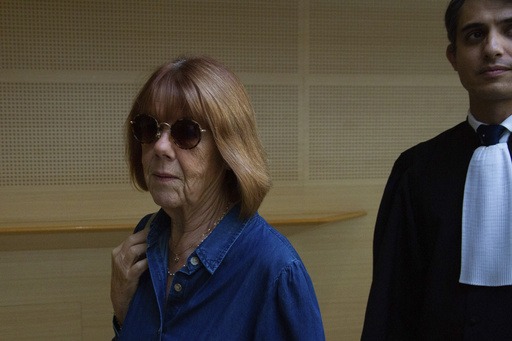
In Avignon, France, the trial of Gisèle Pelicot’s ex-husband, Dominique Pelicot, and 50 other men accused of raping her while unconscious continued with intense questioning by defense lawyers. Gisèle Pelicot, who has become a symbol of the fight against sexual violence in France, faced inquiries about her habits, personality, and even her level of consciousness during the assaults.
Her ex-husband had testified that he drugged her for nearly a decade and allowed multiple men to rape her while she was incapacitated. Gisèle Pelicot vehemently denied any implication that she was complicit in the assaults, expressing her humiliation at being portrayed as such during the trial.
Despite the ex-husband and defendants facing up to 20 years in prison if found guilty, many of them deny the accusations. Some claim they were misled by Dominique Pelicot, others argue consent, and some suggest her husband’s approval was sufficient.
Gisèle Pelicot and her legal team point to the substantial evidence, including thousands of videos and photos showing her unconscious during sexual encounters, to establish her victimhood. However, defense attorneys raised questions about consent, her level of awareness during the assaults, and the specifics of the recorded incidents.
Throughout the court proceedings, Gisèle Pelicot displayed resilience in the face of intrusive questioning by the defense, firmly rejecting insinuations and remarks that undermined the severity of the assaults. Her ex-husband, who confessed to the crimes, expressed support for her and acknowledged his actions without her knowledge.
The trial, which has garnered significant attention in France, highlights the complexities of prosecuting sexual violence cases and the importance of supporting victims like Gisèle Pelicot in seeking justice and accountability for their perpetrators.
